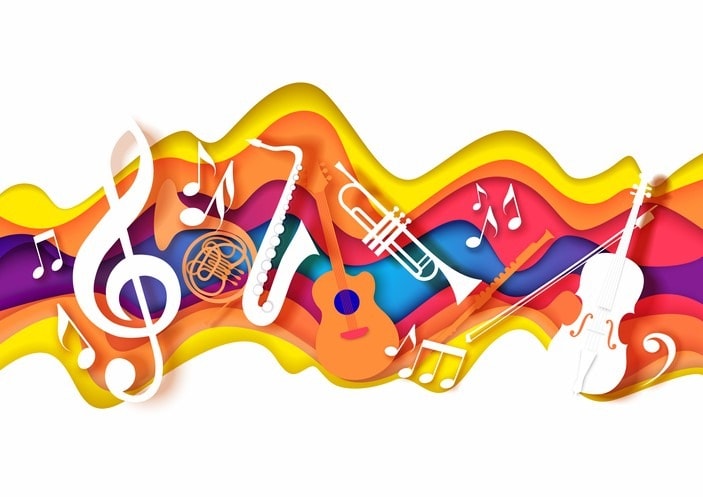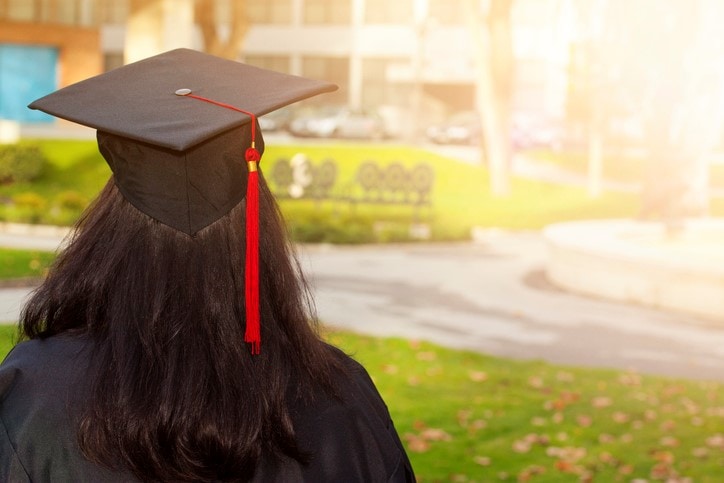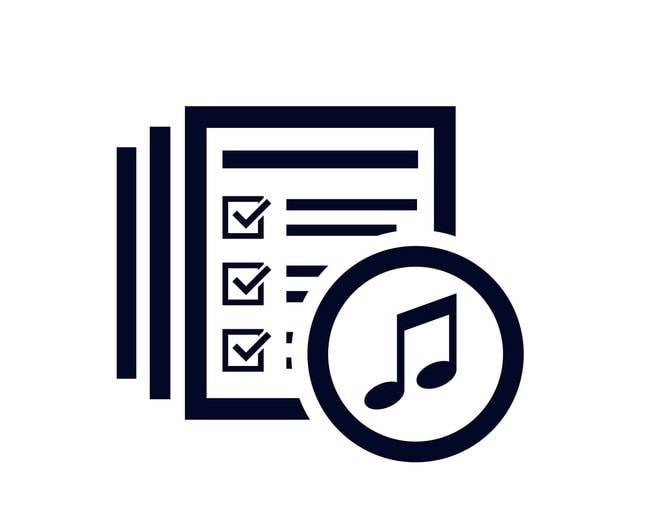/ News Posts / 5 Essential Skills for the Next Generation of Music Teachers
5 Essential Skills for the Next Generation of Music Teachers
Sponsored by University of Florida Online Master of Music Education
Many music educators are rethinking how to help students acquire skills and experiences that yield lifelong benefits. While most of the young people you teach may never play or sing in a large ensemble again after graduation, they can discover lasting value from becoming more capable listeners, performers, and, in some cases, composers. Sharing those experiences is a matter of strategically employing practices based on current research and data.
The faculty in the University of Florida online Master of Music in Music Education program are scholars who uncover multidisciplinary insights into the learning process and teachers who investigate best practices for deploying technology-based tools in traditional and virtual classrooms. This program can equip you with practical instructional methods designed to engage students and enrich their lives long after they leave your class. By embracing dynamic, research-driven pedagogy, you’ll be ready to make immediate improvements to your teaching as well as adapt your lessons for new generations of learners.
Consider these five key areas for your professional development:
1. Flexible Pedagogy and Instructional Design
It’s easy for educators to get locked into a routine of repeating similar activities, often geared toward preparing for an annual series of performances. A flexible approach that embraces the varied possibilities of instructional design can be more effective in getting students involved and expanding their musical knowledge and skills.
The disruptions to music teaching during the COVID-19 pandemic forced many instructors to reassess how they can make the best use of each class period and meaningfully integrate technology into lessons. In many ways, these pressures reinforced the UF music education faculty’s commitment to curriculum development based on the Understanding by Design (UbD) approach.
Using the UbD conceptual framework, teachers always place clearly defined learning outcomes at the forefront of their plans and then work backwards to determine (a) the assessment evidence necessary to be able to determine the extent to which students meet those outcomes, and (b) the learning strategies and specific activities that will facilitate students’ understanding, allowing them to demonstrate the assessment evidence required for the teacher to verify achievement of the learning outcomes.
“In an activity-based approach, we have full ensemble rehearsal every day, five days a week,” explained Barry Hartz, a UF assistant professor of music education. “When we can’t do that, we have to think about the purpose of the activities and emphasize outcomes as opposed to just perpetuating the same activities that we’re used to.”
By expanding your knowledge of pedagogical concepts, supportive technologies, and assessment techniques, you develop a toolkit that can be applied to various learning situations for both groups and individuals. For example, you may adopt technology solutions by having students create music with a digital audio workstation or encourage them to take advantage of the endless possibilities for analyzing different styles of music through streaming media. The key is to always consider how you can most effectively synthesize multiple approaches to build students’ musical knowledge and skills.
2. Culturally Responsive Teaching
Educators often have very different backgrounds from the young people in their classes, which can create obstacles to instruction and academic achievement. Culturally responsive teaching offers a student-centered foundation for bridging these gaps. In order to grow as a professional, you’ll explore new perspectives on course material and think about behaviors and beliefs that might interfere with communication.
A music curriculum that reflects diverse identities in both subject matter and approaches to assessment is a powerful way to connect with students’ existing cultural knowledge and show that you value the individuals in your classes. For example, your students’ passion for music may be steeped in a range of vernacular styles. You can promote greater engagement by seeking opportunities to go beyond the canon of Western art music to nurture their interests.

Photo: Victoria Chamberlin | victoriachamberlin.com
Teachers can find new educational opportunities by familiarizing themselves with the history and techniques of musical genres that are popular in the U.S. such as folk, jazz, rock, rap, and reggaeton as well as other musical traditions from around the world. When you open up the repertoire, you’ll perceive vital connections across cultures that increase the relevance of your instruction and enable productive collaborations with learners.
3. Nurturing Creativity
Creative thinking is a complex, multifaceted skill that requires conscious effort to cultivate. By accounting for the psychological principles behind our musical experiences and continually challenging yourself to expand your musical horizons, you can gain insights into the cognitive processes that drive creative music performance, improvisation, composition, and listening. That’s why the UF music education master’s program presents a multidisciplinary examination of the way the human mind responds to and formulates music.
When you understand the cognition behind musical creativity, you can establish a curriculum that promotes original thinking and problem solving through memorable, hands-on activities. You’ll have the conceptual and practical knowledge to create the structure for learners to express themselves through a variety of musical activities based on their ages, levels of development, and specific musical context. For example, young children may benefit from improvising simple rhythm patterns, while more experienced students can use composition software to craft their own pieces.
“We encourage the teachers in our program to incorporate creativity into their own lesson and curricular design,” said UF Assistant Professor Megan Sheridan. “They not only develop their own creativity, they also learn how to develop creativity in their own students.”
4. Musical Versatility
Part of what makes music such a fascinating area of study is the near-infinite room for novel directions in instrumentation, style, tonality, and technique. Deepening your knowledge of theory and performance practices in multiple styles is an indispensable aspect of your professional development. By strengthening your ability to create, perform, and listen to music in different ways, you’ll be better prepared to address the needs of students and introduce them to a wide variety of musical experiences.
For example, you can apply lessons in audiation, which can be described as the ability to think musically, hearing and understanding music in one’s mind that may not even be physically present. As students become familiar with tonal and rhythmic patterns, perceiving the theoretical concepts behind those patterns, they will become increasingly capable performers, composers, improvisers, and/or music listeners.
“We feel flexible musicianship is really important for teachers and for students,” explained Marshall Haning, an assistant professor at UF. “We want people to be able to compose, improvise, and listen in a more analytical way and to experience a broad range of music activities.”
5. Joining a Scholarly and Musical Community
For musicians and teachers alike, active engagement with mentors and peers is a powerful means of growth and development. Staying current with research from music education scholars allows you to harness quantitative and qualitative findings as you update a curriculum and seek more representative methods to assess your students’ progress. By pursuing graduate education in the field, you can garner pedagogical insights from scholarly literature while benefiting from firsthand perspectives of expert faculty members and fellow music teachers.
According to Haning, the chance to connect and collaborate with a diverse group of musicians, instructors, and researchers is at the heart of what makes a learning opportunity like the UF online master’s in music education so valuable.
“As a part of this program you’re joining a community of scholars, so we’re not just making things up as we go along,” he explained. “We’re learning how to be deliberate about the choices that we make and how to base those things on verifiable data.”
The University of Florida’s online Master of Music in Music Education program brings music educators from across the country and around the world together to enhance the essential skills that allow them to accomplish more as musicians and teachers. Designed and taught by leading experts in the field, this flexible, online program offers an array of innovative approaches to strengthen student engagement and assessment.
Did this blog spur new ideas for your music program? Share them on Amplify! Interested in reprinting this article? Please review the reprint guidelines.
The National Association for Music Education (NAfME) provides a number of forums for the sharing of information and opinion, including blogs and postings on our website, articles and columns in our magazines and journals, and postings to our Amplify member portal. Unless specifically noted, the views expressed in these media do not necessarily represent the policy or views of the Association, its officers, or its employees.
August 4, 2021. © National Association for Music Education (NAfME.org)
Published Date
August 4, 2021
Category
- Careers
- Collegiate
- Innovation
- Music Education Profession
- Music Educator Workforce
- Preparation
- Research in Music Education
Copyright
August 4, 2021. © National Association for Music Education (NAfME.org)








